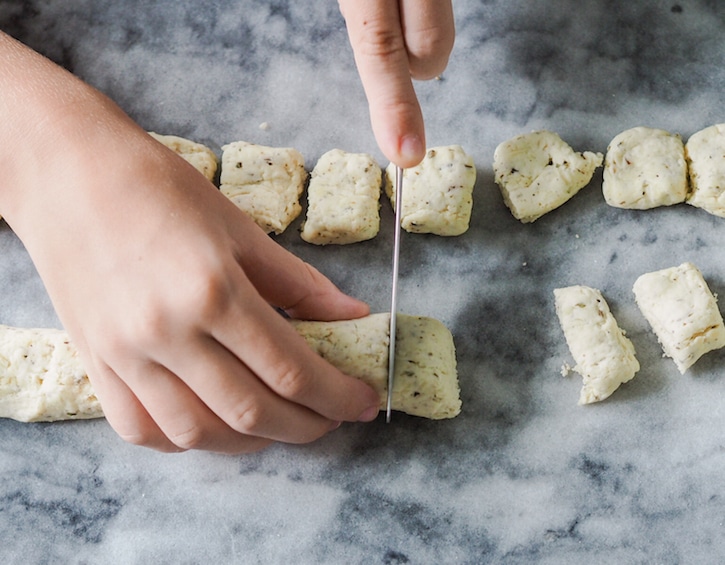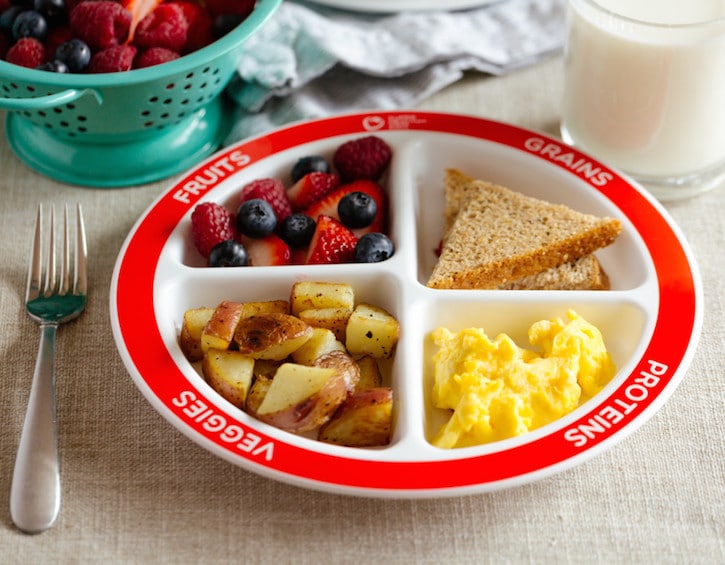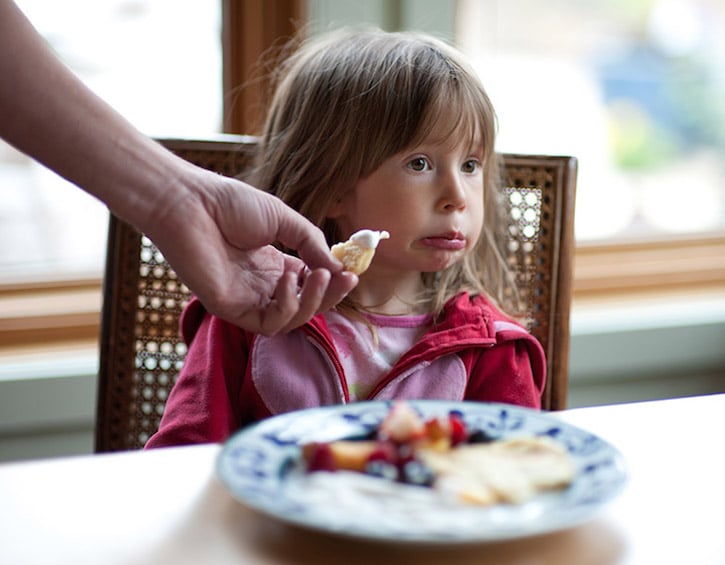
 Post Category - WellnessWellness - Post Category - NutritionNutrition
Post Category - WellnessWellness - Post Category - NutritionNutritionIf your picky eater has you at your wits’ end, check out these super helpful tips from family nutritional therapists, who are full of useful advice for helping your kids eat a range of healthy and delicious snacks and meals!
 Got a picky eater on your hands? Foodie Mama Ghillie James speaks with The Nourished Tribe Singapore, a company recently set up by nutritional therapists (and mamas) Marianna Miles and Eleanor Thoms to help make health and nutrition simple and accessible to all. Through online health programmes and a clinic for bespoke nutritional support, they are there for both the mums and the kids. They kindly shared their top tips on tackling fussy eaters.
Got a picky eater on your hands? Foodie Mama Ghillie James speaks with The Nourished Tribe Singapore, a company recently set up by nutritional therapists (and mamas) Marianna Miles and Eleanor Thoms to help make health and nutrition simple and accessible to all. Through online health programmes and a clinic for bespoke nutritional support, they are there for both the mums and the kids. They kindly shared their top tips on tackling fussy eaters.
Are all kids fussy eaters at some stage?
Between 18 months and 3 years a lot of children will go through a developmental stage of being fussy around food. However for some families this fussiness continues well into the school years, too, which is when some clever tricks can be really helpful!
What can mamas do to get things back on track?
Establish a routine when it comes to meal and snack times and stick to it. The kitchen is not open 24-7! It can be really easy for children to snack too much in between meals, or fill up on juice or smoothies throughout the day so they are not hungry at mealtimes.

Get them involved. Get your children in the kitchen. Get them chopping, mixing, stirring and even laying the table. Most children love to cook and are much more willing to eat foods if they have helped prepare them.
Read More: How This 7-Year-Old Cooks Family Meals
Give them options. Have a few sharing bowls out on the dinner table and let your child choose what goes on their plate. You are still in control of what’s available for your child to eat, but this empowers them to make the choice. Involve them in meal planning by looking at recipes and choosing what they might like.

Introduce “problem foods” one at a time with foods that they do like so you know that they will actually eat something on the plate. If you can’t get the food on the plate, have a taster bowl. A lot of children have an aversion to a lot of foods. An aversion is like an actual fear for a child. So, if your child is really averse to eating a particular food they really do have a fear! One of the things you can try is to have a little taster bowl next to their plate. This way there is no “contamination” with the food that they are prepared to eat on their plate. All they have to do is to try it, there is no pressure to eat it. Trust us, this really does work!
Be consistent with offering different foods. Eating isn’t a pass or a fail exercise. As parents we feel this stress, pressure and guilt at mealtimes. If they are not going to eat it today then tomorrow is a new day and a new opportunity to succeed. Even if they take one bite or have a lick of that food, chalk it up as a success and build on this exposure. It takes time. It can take up 14 exposures before your child may eat it. Don’t give up!

Encourage family dining. This may not be possible every day but make weekends at least the time when you eat the same food together as a family. Their eating confidence is totally related to your eating confidence, your variety, attitude understanding and the ability to try something different.
Read More: How ‘Home Hawker’ Tammy Hitchens Feeds 13 Kids

Could there be something else going on?
If you’ve tried all of the above, there may be a reason why they are being awkward with food. This is something that we can look into at clinic as there may be an underlying physical or biochemical reason why.
Here are some of the avenues that may be worth investigating:
- Zinc Deficiency
Zinc is an important mineral in the growth and development of children. Zinc deficiency is commonly linked with changes in appetite, taste and smell, food cravings for sweet and salty foods. Nuts, seeds, and meat are all great sources of zinc. A broad spectrum children’s multi-vitamin will cover off any shortfalls.
- Digestive Issues
Your child may associate certain foods with pain, discomfort, bloating and as a result be less inclined to eat them in their diets. This may be linked to:
Gut bacteria: Low gut bacterial diversity has been associated with an increased preference for sweet and salty foods.
Low stomach acid: This can cause pain and bloating. Protein rich foods take longer to digest and your child may associate these types of foods with digestive discomfort and therefore be reluctant to eat them.
Physical digestion: If your child experiences reflux or colic after eating, they may associate that food with their physical symptoms.

- Food Intolerances
Chances are if your child is intolerant to a certain food, they will not be digesting this food well, which can lead to pain, bloating, diarrhoea or constipation.4 Food particles can escape out of the digestive tract and into the blood stream, promoting an immune response which is commonly referred to in nutrition circles as ‘leaky gut’. Often we find it’s the foods that we eat the most of that are causing this immune response and subsequent digestive discomfort. Elimination diets and food intolerance testing can be carried out in clinic if you suspect that your child may be reacting to certain foods.
- Autism Spectrum Disorders
Many ASD children are often picky eaters. Eating is a multi-sensory experience and problems arise as a very real physical and neurological responses on the part of the child. Several studies suggest that autistic children may have an impaired gut barrier function with elevated intestinal permeability. 5
Read More: A Mother’s Letter to Her Daughter with Autism
![]()
Thank you, ladies! There are many different dietary approaches that may help your child, and finding the right one for them is crucial. If you are concerned about your child’s eating you can speak to Eleanor or Marianna to make an appointment, or email them at [email protected]p to see how they can help you and your child further.






 View All
View All




 View All
View All










 View All
View All



![[𝗡𝗘𝗪] 𝗣𝗮𝘀𝗶𝗿 𝗥𝗶𝘀’ 𝗕𝗿𝗼𝗻𝘁𝗼𝘀𝗮𝘂𝗿 𝗣𝗮𝗿𝗸 𝗶𝘀 𝗕𝗔𝗖𝗞. 𝗦𝗮𝗳𝗲𝗿 & 𝗙𝗨𝗟𝗟 𝗼𝗳 𝗗𝗶𝗻𝗼-𝗦𝗶𝘇𝗲𝗱 𝗙𝘂𝗻! 🦕🦖
A dinosaur you can climb into, a tail slide you can zoom down, and plenty of spots for kids to swing, bounce, and explore? Yeap, it’s a full-on dino adventure. After being closed for a major revamp, Brontosaur Park is now officially open (and safe!) for little adventurers to run wild.
Comment “DINO” or hit the link in bio for more epic outdoor playgrounds in Singapore!
𝗪𝗵𝗮𝘁 𝘄𝗲 𝗹𝗼𝘃𝗲:
- A Brontosaurus structure kids can explore from the legs to the belly
- A roller slide that goes right down the dino’s tail
- Rope bridges, climbing nets & hammocks between stego spikes = plenty of ways to burn off energy
- Toddler-friendly mini dino zone for the little ones
- Spot dino sculptures painted by residents (hidden all around the park)
𝗧𝗶𝗽𝘀 𝗳𝗼𝗿 𝗺𝗮𝘅 𝗳𝘂𝗻:
- Wear grippy shoes. Lots of climbing involved
- Pack snacks and water (There are minimarts nearby)
𝗪𝗵𝗲𝗿𝗲? The playground is located between Blk 777 & 778, along Pasir Ris St 71
𝗖𝗼𝘀𝘁? FREE!
.
.
.
.
.
#DinoPlaygroundSG #PasirRisPlayground #SgPlaygrounds #OutdoorFunSG #FreePlaygroundsSG #BrontosaurPark #SgFamilyAdventures #ThingsToDoWithKidsSG #SingaporeWithKids #PlaygroundGoalsSG #ToddlerPlaySG](https://www.sassymamasg.com/wp-content/plugins/instagram-feed/img/placeholder.png)
